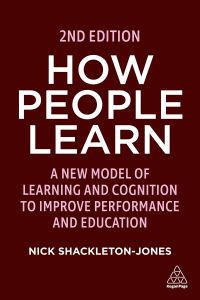Зарегистрируйтесь на getAbstract, чтобы получить доступ к этому краткому изложению.

Зарегистрируйтесь на getAbstract, чтобы получить доступ к этому краткому изложению.
Nick Shackleton-Jones
How People Learn
Designing Education and Training that Works to Improve Performance
Kogan Page, 2023
Что внутри?
Failing schools and corporate learning systems must design education that addresses learners’ priorities.
Recommendation
Nick Shackleton-Jones provides a searing indictment of education in schools, colleges and organizations. He defines their problems, then offers a sensible solution: Design education and training that addresses learners’ cares and concerns. He calls for replacing current academic and corporate educational systems with resources and experiences with designs that meet learners’ priorities. Shackleton-Jones describes his “Affective Context Model” as the first unified learning theory, the only theory prioritizing emotions as the root of learning. While his approach contains many practical ideas, dismissing everything people thought they knew about learning seems extreme.
Summary
About the Author
Nick Shackleton-Jones is HR Director, Talent & Learning at Deloitte, UK. Previously, he worked for PA Consulting Group, BP, Siemens and the BBC.






















Comment on this summary